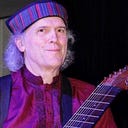Member-only story
The Woke Revolution in Moral Habits
This is a selection from my article “Habits of Goodness: How We Come To Be Virtuous Without Moral Laws.”. It was published recently in the Cambridge University Press Anthology “Habits: Pragmatist Approaches from Cognitive Science, Neuroscience, and Social Theory. The rest of the article contains the Neuroscience and Neurophilosophy used to justify this view of ethics. The complete article is available at https://www.academia.edu/45142978/Habits_of_Goodness_How_We_Come_to_be_Virtuous_Without_Moral_Laws
All belief systems, both factual and moral, go through periods of crisis, which lead to revolutions, then resolve into new ideas of what is normal and proper. We are in such a crisis now, caused by the rise of substantial numbers of people from underprivileged groups into positions of influence and power. These newly influential people are still underrepresented, and they are still subject to injustices not experienced by their traditionally privileged colleagues. Nor are these positions of power necessarily at the top of every food chain. Nevertheless, it is commonplace now for members of formerly privileged groups to have colleagues and bosses who are members of formerly underprivileged groups. The latter have thus justifiably decided that they are now in a position to demand that we reconfigure our ethics to accommodate their perspectives and feelings.
When the first underprivileged managed to work their way into the corridors of power , the most sensible strategy for them was to learn how to behave “normally” i.e. in ways…
